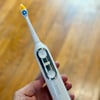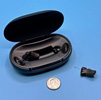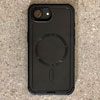Could typing out passwords soon be a thing of the past? A new UC Berkley study suggests that the traditional method of computer authentication can be readily replaced with “pass-thoughts,” allowing you to gain access to your computerized accounts simply by thinking.
 The study, led by professor John Chuang, asked test subjects to imagine performing certain tasks, such as concentrating on their breathing, while wearing a $100 commercially available NeuroSky electroencephalogram (EEG) headset. Researchers recorded the brainwaves caused by the subjects’ thoughts, saving them as pass-thoughts.
The study, led by professor John Chuang, asked test subjects to imagine performing certain tasks, such as concentrating on their breathing, while wearing a $100 commercially available NeuroSky electroencephalogram (EEG) headset. Researchers recorded the brainwaves caused by the subjects’ thoughts, saving them as pass-thoughts.
When test subjects returned at a later date, they were asked to again concentrate on their breathing while wearing an EEG headset. Computers were able to identify each test subject based on their brainwaves with a 99% success rate.
Writes Chuang, “With the embedding of EEG sensors in wireless headsets and other consumer electronics, authenticating users based on their brainwave signals has become a realistic possibility.”
While no one expects the public to race out and buy $100 pass-thought headsets, EEG technology holds a lot of promise as it evolves. It’s not unreasonable to think that cellphones and other devices could soon have EEG monitors built in, allowing us to unlock our phones just by thinking about unlocking our phones.
Tell us: What do you think about the new technology? Don’t worry, we promise we won’t use your thoughts to try and break into your computer. It’s not possible … yet.
















